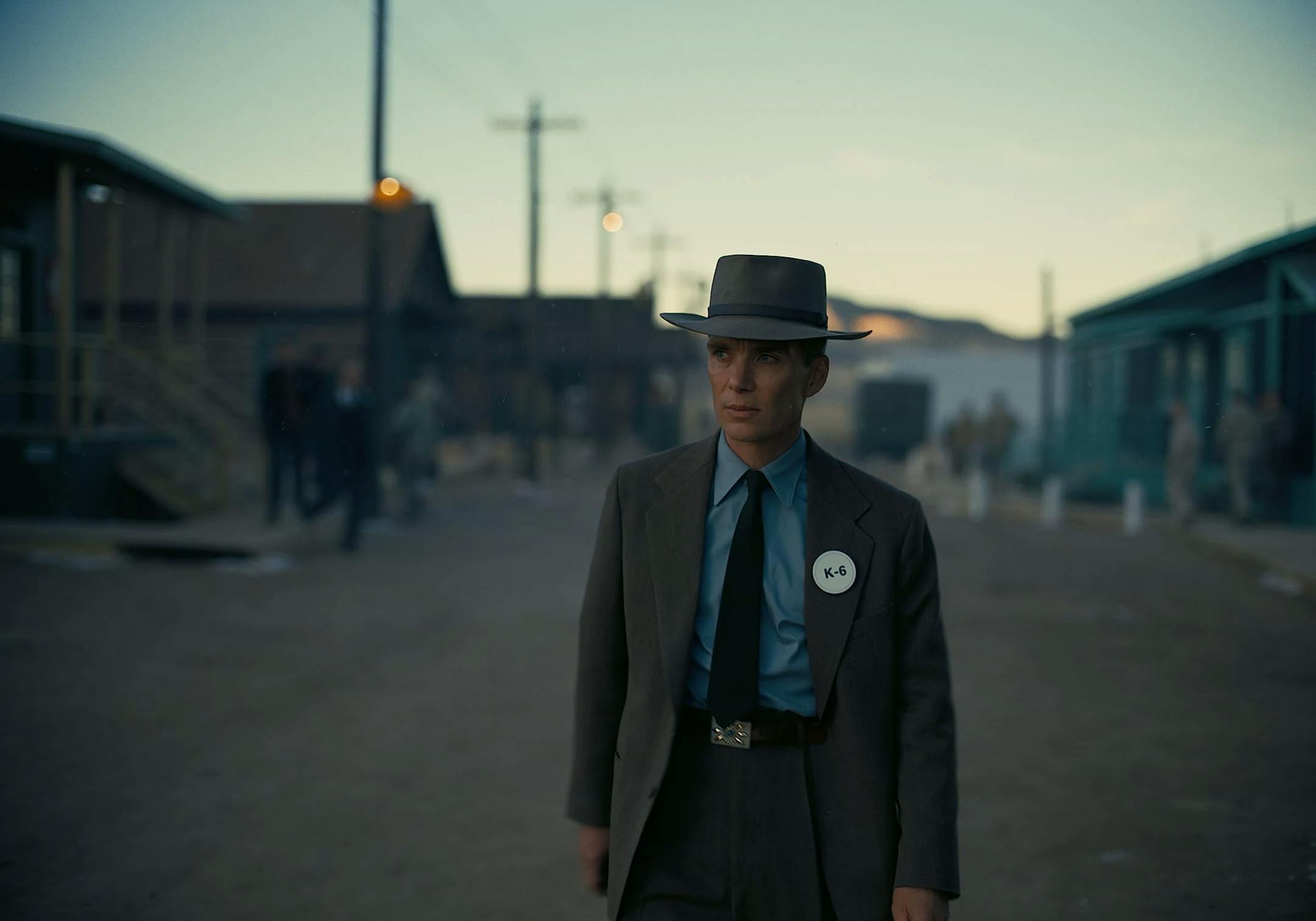"Oppenheimer" Shows Us How Arrogance And Science Could Ultimately Destroy Us
“Prometheus stole fire from the gods and gave it to man. For this he was chained to a rock and tortured for eternity.” These are the first words of Christopher Nolan’s "Oppenheimer," the serious biopic which helped to create last weekend’s explosive “Barbenheimer” box office success.

Director Christopher Nolan is a celebrity in his own right, famous for movies beloved by cinephiles such as The Dark Knight and Inception. Nolan’s films are often convoluted and clever, with impressive visuals crafted to be seen on the rare IMAX 70mm format.
Oppenheimer relays a large part of the life of J. Robert Oppenheimer (Cillian Murphy), the theoretical physicist and project manager of The Manhattan Project who is credited as “the father of the atom bomb.” As Oppenheimer leads his team of scientists in the creation of a bomb that can destroy a city (and possibly the whole world), the film tests both the limits of scientific achievement and humanity’s moral ability to determine the “should do” to our knowledge of what we “could do.”
*The biggest spoiler is the book American Prometheus, but this reviewer may have included some as well.*
The Film Shows Us the World Through Oppenheimer’s Eyes
Thematically, Oppenheimer is almost the reverse of Nolan’s other World War II movie Dunkirk, released in 2017. Both are films about achieving something impossible, but where Oppenheimer follows the life of a self-obsessed genius, Dunkirk features a then-relatively unknown actor playing a common soldier. Dunkirk depicts the victory of saving lives that are headed for death, but Oppenheimer achieves victory by initiating a monumental loss of life.


But Oppenheimer doesn’t only tell the story of one brilliant man who achieves the impossible. It’s also very clear from the scenes we see of young Oppenheimer that he isn’t just brilliant – he knows he is.
Nolan, who wrote the film as well as directed it, explains that he wrote the script in the first person. By putting the audience in Oppenheimer’s shoes, we feel his joy at success and are blinded by his same faults. It’s for this reason of perspective that none of the Asian victims of the atom bomb appear on screen – because Oppenheimer himself has not thought about them in his creation of the bomb. It’s a powerful technique that forces us to question our own blindness when the film reaches its conclusion.
Nolan’s unique approach to his celebrity cameos further unites us with Oppenheimer’s viewpoint. After years of the Marvel Cinematic Universe, audiences have become accustomed to celebrity cameos as clickbait spoilers. But when Kenneth Branagh appears as Niels Bohr, Tom Conti as Albert Einstein, and Casey Affleck as the intimidating Colonel Boris Pash, we recognize them just as Oppenheimer does. They are well-known faces of cinema to us, and brilliant men whom Oppenheimer admires. It’s another way that the film asks us to see the world through Oppenheimer’s eyes.

The Impressive Performances of Oppenheimer
Oppenheimer boasts a series of excellent performances that have just the mixture of pathos and showiness to garner Oscar nominations and potential wins.
While I haven’t seen a great deal of Cillian Murphy’s work outside of his Nolan films, I was especially impressed by his capacity to express silent emotion and feeling with only the intensity of his eyes. Murphy’s gaze progresses from bold to haunted, expressing the emotional underbelly of his character’s transformation.

Murphy’s performance is complemented by a fine array of supporting performances, including Emily Blunt’s dark take on Oppenheimer’s wife Kitty. I was surprised at the Oscar buzz around Blunt’s performance until Kitty’s moment of testimony toward the end of the film. This scene had my auditorium cheering and laughing – one of the few moments of the film when we are allowed to express all the pent-up feelings that have been building for over two hours.

The only time the film strays from Oppenheimer’s first-person focus is when it shifts to black and white and follows Lewis Strauss (Robert Downey Jr.), a politician whose connection to Oppenheimer is putting his Cabinet appointment at risk. Downey Jr. is suave – we already knew this from Iron Man – but the way his politician shifts from charming to villainous manages to sneak up on you. Strauss’s plot line, while time-consuming, expands the film’s scope beyond the limitations of science and shows that all human beings have the tendency to serve their own ends at the expense of other people.

Florence Pugh’s Jean Tatlock, Oppenheimer’s mistress and a Communist, feels more symbolic of Oppenheimer’s relationship with communism than a real relationship between two people. It’s rather disappointing that the best use of an actress of Pugh’s caliber seems to have been to give her a variety of intense R-rated nude scenes. And while these scenes may serve a purpose in relaying Oppenheimer’s inner torment, they will make Oppenheimer a difficult watch for many viewers.

Why Oppenheimer Needed an Intermission
If there’s one major criticism I have for Oppenheimer, it’s the film’s deep need for an intermission. And it’s not just that audience members seriously needed a bathroom break, although that wouldn’t have been a bad idea either.
The stakes of Oppenheimer begin high and maintain an intense drive throughout the film. While this is both historically faithful and serves the film’s purpose well, it makes the final third of the film – its most emotionally important – the hardest to sit through. You can only ask people to be on the edge of their seat for so long, and eventually our ability to truly feel the moments of tragedy begins to wear thin. Oppenheimer is never boring, but keeping high tension prevents the audience from following along emotionally.
In the era of classic cinema, films like Lawrence of Arabia and Ben-Hur met this challenge by putting an intermission after the film’s second act. This gave the audience a time to celebrate before the inevitable “undoing” of the film’s final section. The absence of an intermission prevents Oppenheimer from achieving the epic grandeur that it otherwise would have accomplished.
There are, however, a few stellar scenes in the film which are so excellent that they defy this challenge to the audience’s attention. Take, for example, Oppenheimer’s speech to the residents of Los Alamos, who laud him as a hero, during which he first senses the true legacy of his creation. It’s a stunning piece of cinematography and easily one of the best film scenes of the year.

The use of sound editing in this sequence is especially notable – bringing to life Oppenheimer’s slow realization that his act of heroism is also an act of great destruction. As Oppenheimer watches a woman before him turn to ash, hears a woman’s scream in isolation as a cry of terror, he realizes the truth of his translation earlier in the film: ‘Now I am become death, the destroyer of worlds.”
Silence and Sound: Music Gives Us the Voice of Oppenheimer’s Thoughts
The score for Oppenheimer was composed by Ludwig Göransson, who composed the score of Nolan’s Tenet and won an Academy Award for his Black Panther score in 2018. In an interview with Vanity Fair, Göransson explains that the score was much more personal for him because he needed to “do everything from [Oppenheimer’s] eyes and from his mind.”
At Christopher Nolan’s insistence, the film’s score was based around the violin. Göransson – whose wife Serena McKinney is a virtuosa violinist – explained why the strings used in “Can You Hear the Music” and “Trinity” were perfect to express Robert Oppenheimer’s thoughts: “There’s so much in the performance of the violin. Within a second you can go from something beautiful to something completely horrifying.”
Göransson also injected his score with a variety of unique sounds to mark Oppenheimer’s transition from theoretical physicist to the creator of a very real bomb. “Ground Zero” utilizes the sound of a Geiger counter, which reads radiation levels, and the sound of an admiring crowd’s feet becomes a drumroll that overlaps with the sound of feet running in terror.
Perhaps my favorite thing about the sound design in Oppenheimer was how silence is used as a sound in itself. It’s some of the few moments where we stop hearing the beautiful and cacophonous sound of Oppenheimer’s thoughts and pause to realize what he has created. It’s reminiscent of A Quiet Place in the best way.
The Trinity Test, where the scientists of Los Alamos do their final test of their bomb, is probably the best example of this in the film and is one of my favorite sequences. The violins swell into Gorrensson’s “breathtaking frenzy” until the bomb erupts into silence – a long silence where the weight of his creation finally begins to dawn on the scientist. When the sound of the bomb finally hits Oppenheimer, and us, we realize – something both grand and terrible has been created.

Closing Thoughts
Oppenheimer is a somber meditation on the dangers of human science, and more so on the human beings who use it. The film’s intensity is relentless – almost too much so. But audiences will still leave the theater with the overwhelming sense of the dangers of human arrogance. Oppenheimer shows that our brilliance gives us enormous power over things – things that could ultimately destroy us.
Support our cause and help women reclaim their femininity by subscribing today.